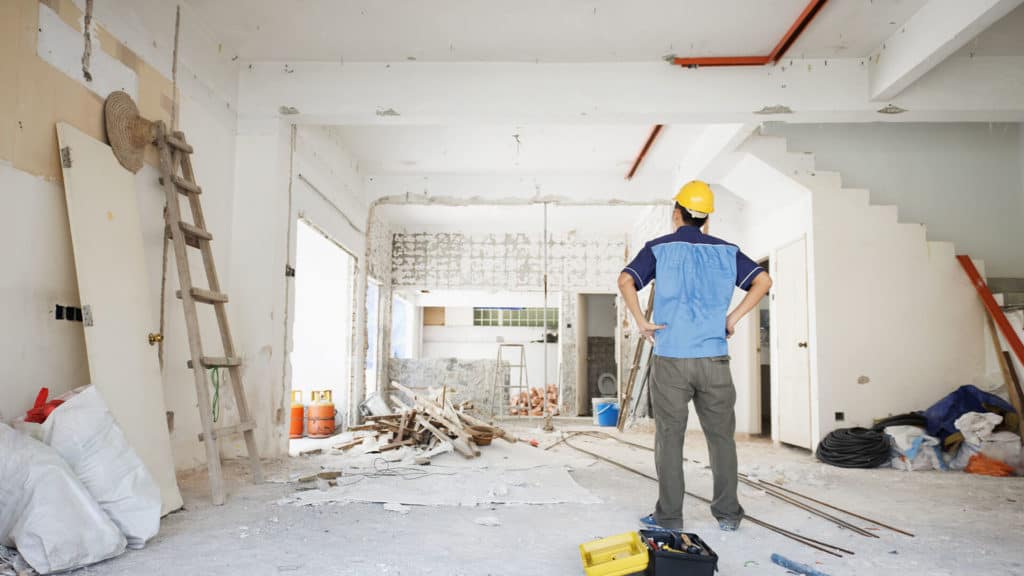To move, or not to move?
For growing families, the question of selling or renovating can be much more complicated than it seems. While finding a new property to move into can be exciting, it can also be complex and unpredictable in an ever-changing market. However, even with the gratification of home renovations, the project can be costly, tedious and overwhelming, adding more stress than satisfaction.
To begin making a decision, you’ll want to determine the best financial and emotional decision for you and your loved ones. This may imply making a pros and cons list or discovering what you are looking for from a new property and/or a home renovation. To generate your thinking, here are a few questions you can ask yourself:
What Is Your Current Mortgage Situation?
How Much Money Do You Have Saved, & How Much Can You Afford?
Do You Have An Emotional Attachment To Your Current Home?
What Part(s) Of Your Home Need Renovating?
Are You Able To Reach Your Home Goals Solely Through A Renovation?
What Does The Real Estate Market Look Like, & What Are The Current Months Of Inventory?
Is The Timing Right?
Depending on what direction you are leading in, it can be good to determine your end goal. For example, if you decide to renovate, you’ll want to know if you are doing so to heighten the value of your home or because you want to remain at your current property for years to come. However, if you are considering selling and moving to a new location, it may be helpful to take a look around your neighbourhood and consider whether or not you love it or are itching to depart from it.
Additionally, it can be helpful to consider which of your needs can be achieved through a renovation and which can not. For example, if you are looking for a more considerable lot and additional bedrooms for your growing family, it may be wise to look for a new property that will suit your immediate needs. However, if you are looking for a change in scenery or a better function/flow within your home, you may be able to achieve this through renovations alone. From here, you’ll want to consider a few more questions:
What Is Your Budget?
Understanding what you can and cannot afford will help make this decision easier. While the average cost to renovate a home varies depending on the size/age of your home and how complex the plans are, according to the CIBC’s 2019 Home Renovation Poll, one-year renovations can cost an average of $10,211. In this sense, it may be a good idea to establish a complete budget plan and factor in a contingency fund in case some things don’t go as planned.
Alternatively, when buying/selling, there is only so much you can control. While the market and months of inventory are constantly in flux, it can sometimes be uncertain territory. Not to mention the additional fees that come with closing costs and preparing your home for a sale.
However, selling may be a better fit for your family. If you’re looking to calculate the months of inventory and understand the market a bit more, you will want to divide the number of homes sold monthly by the total number of properties for sale on the last day of the month. As a result, this will give you a rough estimate of how many homes are currently for sale in your area.
What Are You Capable Of?
If you are a DIY’er, then renovations may be directly up your alley. While do-it-yourself projects can be rewarding and cost-effective, they can also become dangerous tasks. If your heart is telling you to renovate your property, then it’s essential to establish your limits. Creating a master list may help keep you organized and prepared for the things you can handle and the things you cannot.
Further, suppose you are renovating to increase the value of your home and eventually prepare for a sale. In this case, you will need to ensure these renovations meet structural and safety requirements and that you obtain the proper permits. This may mean hiring a contractor to help guide you through this process and ensure everything is completed safely.
Will You Stay, Or Go?
A fundamental question you want to ask yourself if you decide to renovate your home is if you will live there amongst the construction. Depending on how big of a project you are preparing for, it may be wise to establish a plan of action for you and your family. For example, if you decide to live at home while the renovations are taking place, you may want to consider setting up an area for you and your family to reside while the work takes place around you
Perhaps, setting up a home base in the basement while the kitchen is being remodelled may be wise. Or, staying with other family members may be ideal if the construction zone is ever unsafe for you and your family. Either way, you’ll want to have a plan of action.
I’ve Decided To Renovate… Now What?
Now that you’ve decided to renovate your property, you may realize that the whole process is more daunting than you thought. But, not to worry, with a lot of organization, budget planning, and gaining help from professionals, the task will become more clear-cut than you thought it to be. While the Peggy Hill Team is always prepared to help you when you are ready to sell your property, we are also here to give you a few tips on how to save money throughout your renovations.
3 Ways To Save Money On Your Home Renovation
Increase Efficiency, Not Size – It may be wise to consider what you need/want renovated in your home. Remember, you don’t always have to blow out your walls to gain that extra square footage you are looking for. Instead, you may just need to optimize your storage space and remodel a few areas of your home instead of heading for immediate demolition.
Be Resourceful – If you’re renovating on a budget, any cent saved will make a difference in the end. Ask your contractor if they have any salvaged material from old projects. Also, consider visiting thrift stores or antique shops to find second-hand hardware (both a save for your budget and the planet).
Become A Demolitionist – There may be certain aspects of the demo that you can handle yourself. However, after consulting with a professional and understanding how to safely complete the task, doing some demolition with your own hands may be worthwhile

